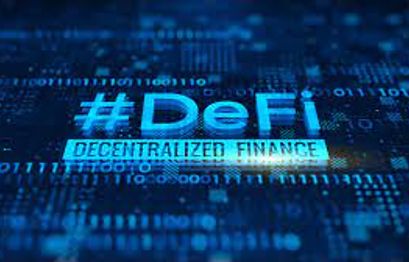For a long time, regulating bodies have been worried that the secrecy of the crypto trade could lead to a rise in money laundering. In the crypto trade, coins are controlled by the holder of a “private key”, which offers opportunities to disguise the ownership and origin of funds. It could be possible for money laundering operations to completely hide where the money for crypto investments is coming from, which opens up doors for criminals to take advantage of the crypto space.
While these worries have always been in the pipeline, they have recently been raised by the growing popularity of DeFi (decentralised finance)– a form of blockchain-based finance that does not rely on a central financial intermediary, such as a broker. The DeFi business already holds assets that are measured in billions of dollars and seeks to replace intermediaries with smart contracts that are operated on the Ethereum blockchain.
DeFi platforms are growing popular with traders due to their lower costs and speedy trading abilities. However, the worry among regulators is that these systems would eventually replace the entities that governments turn to for help in enforcing the laws against money laundering. These entities often stand between people and the market.
Recently, crypto exchange ShapeShift, was announced to become a decentralised autonomous organisation (DAO). This would mean that the company corporate structure would eventually disappear and control of the exchange would transfer to holders of the FOX token, which is distributed between employees, investors and customers. Company founder, Voorhees, will receive the biggest share.
This proclamation was made on July 14 and has received a lot of attention from US regulatory circles, who believe that this is the next step in the battle to prevent money laundering on blockchains.
The main concern of proclamations, such as that made by Voorhees, is that it would go against the key pillar of the anti-money laundering regime: the requirement of financial companies to know their customer. Intermediaries are supposed to know their user’s names, monitor transactions and report suspicious activities to regulators. With no central intermediary, this may not be possible.
DeFi innovations will allow crypto giants, like Voorhees, to break free from obligations and operate more freely. ShapeShift spokesperson, Veronica McGregor, said “The company is not providing any regulated services,” adding, “At present, there are no official regulators of DAOs. ShapeShift is not an exchange, is not a financial intermediary and is not holding custody of any funds. It’s simply an open-source interface for users to interact with their own digital assets.”
If these innovations continue, the most likely result will be conflicts between software developers and regulators. The main question facing regulators at the moment is how to regulate someone who develops software. DeFi brings with it many opportunities for exciting innovation but also opens the doors for money-laundering initiatives. With the rise in DeFi showing no signs of slowing down, regulators may have to act fast to prevent ‘dirty money’ from entering the crypto trade.
Contributors












